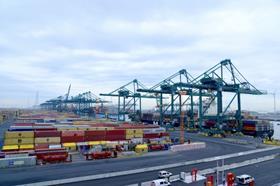
In Belgium, the Port of Antwerp Covid-19 Taskforce met yesterday (29 July), announcing that the port would remain 100 per cent operational during what it called a second wave of coronavirus.
The participants in the taskforce said it remained essential to monitor the Covid-19 situation, and ensure that the port stayed operational as a priority, to help maintain supplies into the country and Europe as a whole.
'The port platform is currently operating flawlessly,' the Taskforce noted. 'Up until now, only isolated cases of the virus have been confirmed. There has not been any rise in absenteeism due to illness, in comparison with last year. The taskforce is continuously monitoring the situation with a view to possible additional measures.'
Incoming ships will continue to present a Maritime Declaration of Health (MDH), whereby the captain must indicate 24 hours before entry into port whether there are any infected persons or suspicions of infected persons on board, as well as a list of the last ten ports of call. The ship is then screened by Saniport (FPS Public Health).
Existing measures have been reconfirmed, such as basic preventive hygiene measures, providing sufficient disinfectants in machines, exchanging documents digitally as much as possible, and applying the rules of social distancing, as far as possible and in particular keeping a distance of 1.5 meters between each person.
Despite the impact of the coronavirus crisis on global production and logistics chains and a pandemic-driven drop in demand, the economic damage for the port remained limited, the Taskforce outlined.
Total transhipments fell by 4.9 per cent in the first half of the year compared to the same period in 2019.
After a strong first quarter, the port witnessed an expected decline in the transhipment of all flows of goods, with the exception of the container sector.
For the third quarter, while the Port of Antwerp is still expecting blank sailings, it is also seeing the first signs of recovery and an upturn in the European economy.



